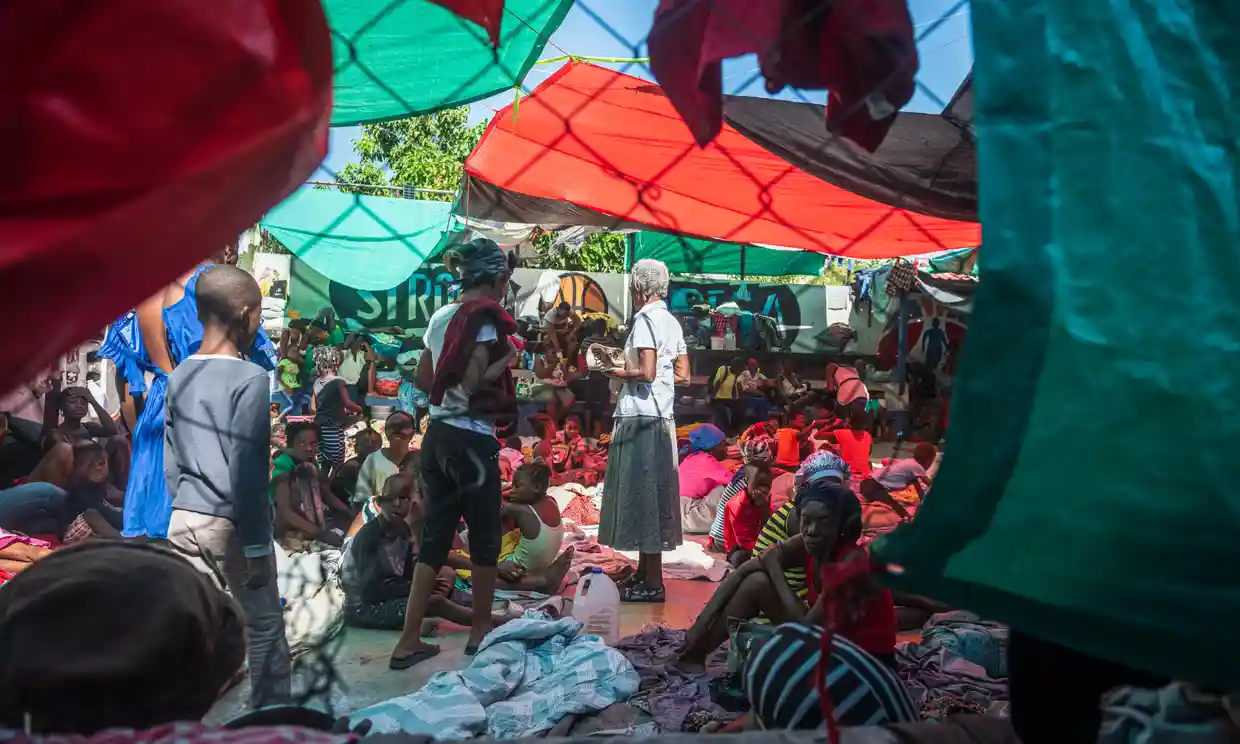UN Calls for Intervention in Haiti as Gang Violence and Hunger Escalate
The Haitian National Police has been overwhelmed by gangs clashing in the capital of Port-au-Prince. Source: Odelyn Joseph/AP/picture alliance
The Haitian capital of Port-au-Prince and 60 percent of the country are currently controlled by gangs. Gang violence has escalated over the past two years, and since the beginning of this year alone, there are 531 dead, 300 injured, and 277 kidnapped. Around 160,000 people have been displaced, and the local police forces are severely out-gunned compared to the non-state armed forces.
The situation has been worsened due to gang blockades that are restricting access to food and water. A World Food Programme report recently found that the food shortage has left 4.9 million people, around half the population, acutely hungry. Moreover, with inflation at 49.3 percent, food prices have increased significantly.
This most recent crisis began after President Jovenel Moïse was assassinated in 2021. It left a political vacuum that gave several gangs, most notably G9 and G-Pep, an opportunity to step in. Prime Minister Ariel Henry, who is also the acting president, increased fuel prices in Sep. 2022, which led to protests and gang blockades. This, in turn, caused severe fuel shortages, making hospitals, supermarkets, and water purification projects unable to operate. Cholera and hunger spiked, violence proliferated, and by October the prime minister requested international “specialized armed forces” to intervene.
Peace negotiations, led by BINUH, the United Nations Integrated Office in Haiti, as well as foreign diplomats, failed to reach a full agreement. As conditions worsened to what is seen today, the United Nations began to call for some kind of military intervention. Biden has recently visited Canada with a main talking point of persuading Prime Minister Trudeau to support Canadian involvement, which seems unlikely. The US has also attempted to recruit Brazil, whose foreign minister is similarly uninterested.
Haitians are suffering from gang violence, food insecurity, and economic disaster. Source: Johnson Sabin/EPA
This discussion of an intervention has revived past concerns about Haiti’s long history of foreign impositions. The country has experienced four international interventions in the past century. In 1915 a similar situation to the current one occurred after the assassination of a president led to US military occupation for 19 years.
This was a consequence of American business interests, and the military rule was riddled with executions and forced labor. In 1994, Operation Uphold Democracy, a military intervention to remove a regime, took place. A decade later, US-backed rebel groups removed a president and UN peacekeepers remained in the country until 2017. There were, once again, many instances of abuse carried out by the occupying peacekeepers. Finally, in 2010, a military response to an earthquake, Operation Unified Response, spearheaded relief efforts for three months.
With this contentious past of foreign intervention, many political actors and civil society organizations denounced Prime Minister Henry’s request. Nevertheless, many others—especially those currently living in lawless zones—have begun to demand an international response. Either way, whether other countries are willing to take the exacting step of a full military invasion is still to be seen.


